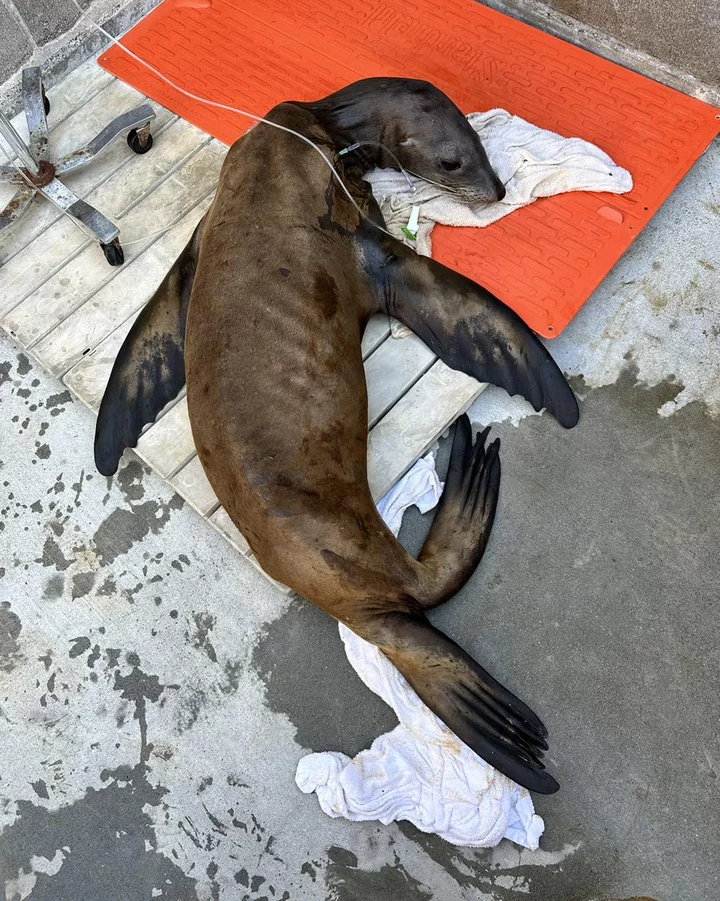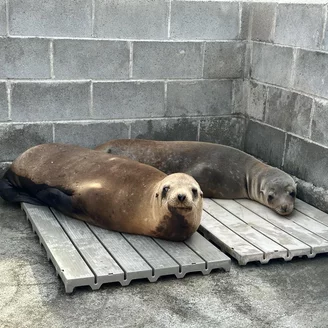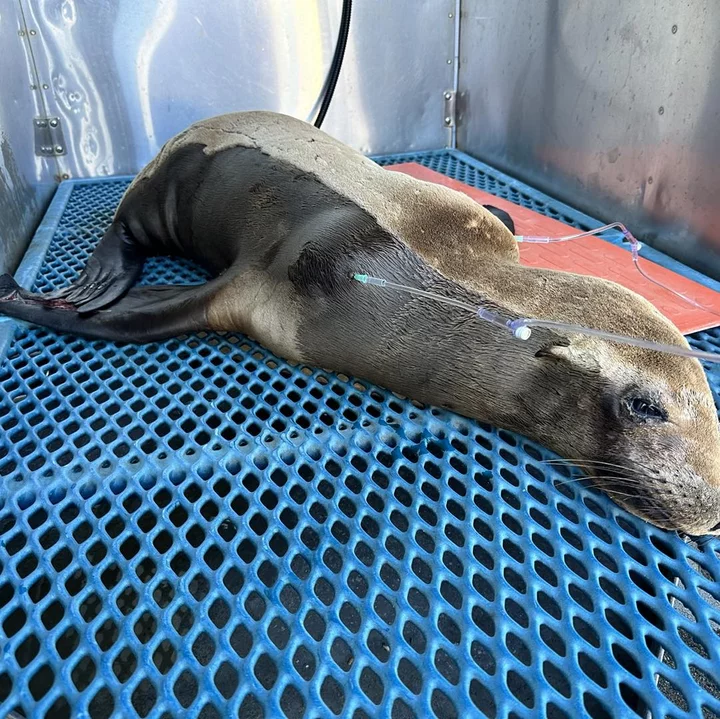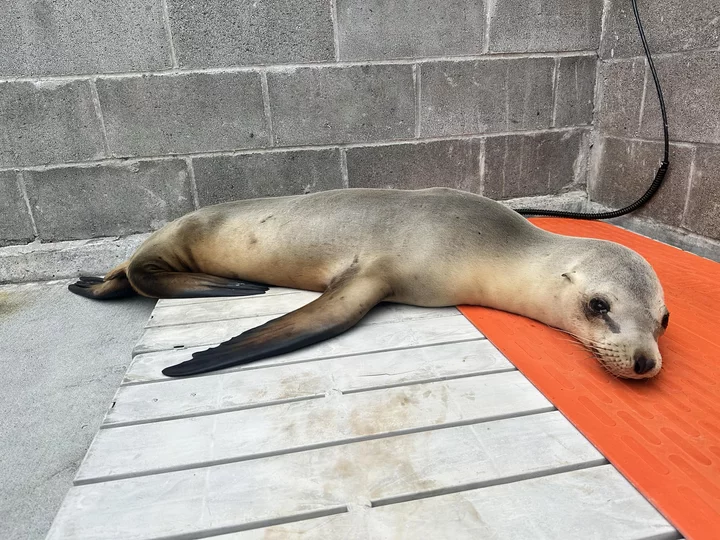Photos via the Northcoast Marine Mammal Center.
###
The Northcoast Marine Mammal Center is reporting an influx of ailing California sea lions who are coming ashore with their bodies depleted by a potentially fatal disease called leptospirosis.
“Lepto is a bacterial infection that attacks the kidneys and can be fatal to these guys,” the nonprofit group says in a Facebook post shared on Wednesday.
The post is accompanied by photos of several sea lions in various stages of recovery. Treatment for this type of infection includes antibiotics, medications that protect against stomach ulcers and lots of hydration, including access to fresh drinking water as well as fluids delivered subcutaneously (under the skin).
This influx of local cases come amid a much larger epidemic of sick and dead sea lions washing ashore along the Northern California coast, with particular concentrations in Monterey, Santa Cruz, Mendocino and Sonoma counties, as reported by news outlets including the Press Democrat, the San Francisco Chronicle and CBS News.
That latter outlet highlights the fact that leptospirosis can also infect dogs. The Sausalito-based Marine Mammal Center issued an alert to dog owners last weekend, urging them to prevent their doggos from getting too close to any sea lions, especially those that appear lethargic and have their flippers tucked close to their bodies.
Leptospirosis can also infect humans, according to the Centers for Disease Control and Prevention, which warns that without treatment, the infection can lead to “kidney damage, meningitis (inflammation of the membrane around the brain and spinal cord), liver failure, respiratory distress, and even death.”
The disease is treatable with antibiotics.
Outbreaks of leptospirosis in California’s sea lion population typically occur every four or five years, though this year isn’t considered one of those outbreak years, Marine Mammal Center Public Relations Manager Giancarlo Rulli told the Chronicle.
Roughly 10 sea lion carcasses have been reported near Bodega Bay with another 10 in Fort Bragg, though Rulli told the Chronicle that decomposition can make it difficult to identify an exact cause of death.
“The reasons for these periodic major outbreaks in sea lions is unknown,” the Marine Mammal Center says on its website, “however our UCLA collaborators believe that a combination of factors may be responsible, such as changes in herd immunity, sea surface temperatures and sea lion migration patterns.”
The organization also says that, even with treatment, roughly two-thirds of the animals that strand with acute leptospirosis do not survive.
The Northcoast Marine Mammal Center responds to hundreds of distressed animal reports annually along the coastline of Humboldt and Del Norte counties. Its rescue hotline is 707-951-4722.




CLICK TO MANAGE